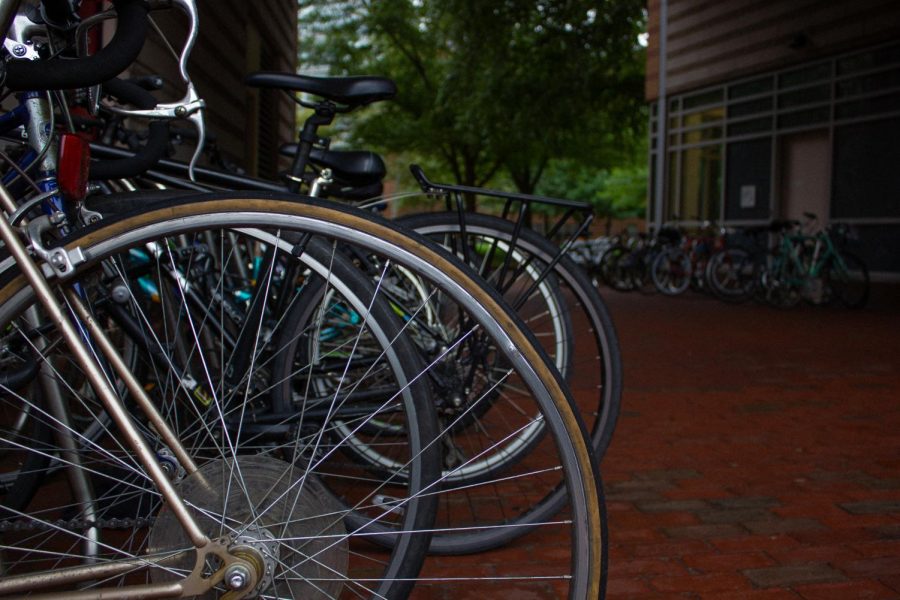Bike robberies on campus: avoidable or inevitable?
NUPD takes unlocked or abandoned bikes and holds them until the following spring, when the bikes are donated to local charities.
October 3, 2019
So far this semester, students and staff have reported 23 bikes as stolen. In the week of Sept. 16 to Sept. 22 alone, five bikes were taken. According to the Boston Herald, bike theft, as well as the frequency of bike parts being stolen, is on the rise in Boston.
“When I left my bike outside of Snell, I figured ‘It’s not for long, no one will notice my bike is unlocked,’” said Rachel Eisenhauer, a second-year biology major who had her bike stolen in November 2018. “I went to NUPD, but at that point, there was nothing that could be done.”
Oftentimes, individual bike parts will be stolen rather than the whole bike. Northeastern University Police Department, or NUPD, Sergeant John Farrell said if someone is looking to steal a bike but sees the frame locked up, they may take an unlocked tire or the seat. That way, even though they did not get the whole bike, they can still sell the parts.
Tara Deane, a second-year business administration major, said she regularly sees evidence of this practice on campus.
“I feel like anytime you pass a bike rack, at least one is damaged, or the parts are stolen,” she said.
Courtney LaPointe, a fourth-year business administration and design major said she knows two people who had their bike or a bike part stolen. “One of my friends came back on two occasions, and her front tire was missing,” she said.
LaPointe said she rides her bike to and from her co-op every day. When she is in classes, she rides her bike from Mission Hill to campus. She secures her bike by putting the U-shaped lock through the front tire and the frame of the bike.
Farrell said the most effective way to store a bike on campus is to use a cord lock as well as a U-bolt lock.
“The best way to prevent bike theft is to use quality locks and use them properly,” he said. “A sturdy U-bolt lock that secures the main frame of the bike to the bike rack is a good defense.”
Farrell also recommended bike riders use “a cable style lock through the tires” in order to protect their wheels as well as their bike frames.
“The safest place to store your bike is in an indoor storage facility,” Farrell said.
In East Village, there is an indoor storage area to keep bikes. In Columbus Garage, there is a locked-up area for students and faculty to store their bikes, accessible only to Northeastern students and faculty.
Farrell said the rising trend of bike theft is due to the rise in the number of bike riders. A 2017 report by the City of Boston found that on parts of Columbus Avenue, bikers represent more than 20 percent of street traffic.
“The push across the country and the world to utilize more environmentally-friendly means of transportation has meant that more and more people are biking to get around,” he said.
Since 2017, about 300 students have registered their bikes with NUPD, according to Farrell. When registering a bike, the officers take down the brand, model, colors and serial number of the bike. If the registered bike is stolen, and the theft is reported, NUPD will receive a notification if the bike is being resold to a bike shop or if the serial number is logged in a store’s system.
Some students who recognize the issue still choose to bike around campus.
Deane said she focuses on the positive aspects of bicycling. “It saves money on commuting and is something I enjoy doing. I try not to let the negatives be the only view I have on the campus biking situation, because there are also a lot of positives,” she said.







